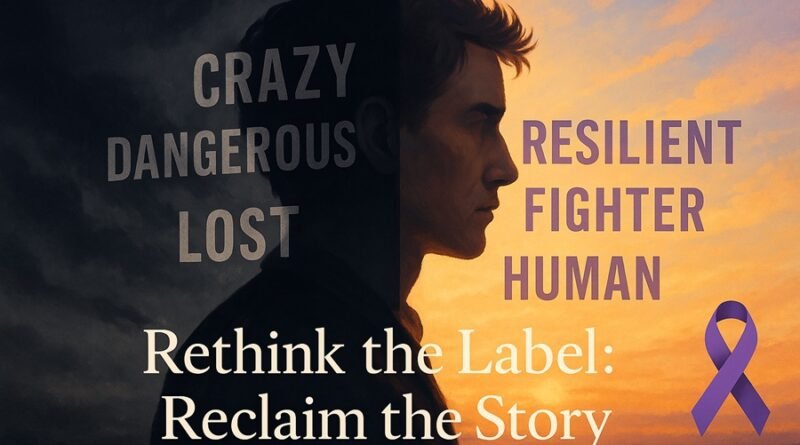World Schizophrenia Day 2025: Raising Awareness
Introduction
World Schizophrenia Day, observed every year on May 24, is a crucial global event dedicated to raising awareness about schizophrenia, a severe mental disorder affecting millions of people worldwide. The day honors the birth anniversary of Dr. Philippe Pinel, a pioneer in humane psychiatric treatment, and aims to eradicate the stigma, myths, and misunderstanding surrounding schizophrenia. It also seeks to advocate for better access to mental healthcare and support systems for patients and families.
What is Schizophrenia?
Schizophrenia is a chronic brain disorder that affects how a person thinks, feels, and behaves. People with schizophrenia often appear as if they have lost touch with reality. The disorder can be extremely disabling if left untreated, but with proper medication, therapy, and support, many people live productive and fulfilling lives.
Common Symptoms Include:
- Hallucinations (mostly auditory)
- Delusions (false beliefs, often paranoid)
- Disorganized thinking and speech
- Social withdrawal and apathy
- Cognitive impairments (memory, attention)
Symptoms usually manifest in late adolescence or early adulthood, with men often affected earlier than women.
Theme of World Schizophrenia Day 2025
Theme: “Rethink the Label: Reclaim the Story”
The theme for World Schizophrenia Day 2025, “Rethink the Label: Reclaim the Story,” calls on society to challenge the limiting and often harmful labels associated with schizophrenia. It urges individuals, media, healthcare providers, and communities to move beyond stereotypes and recognize the full humanity of those living with the condition. The theme emphasizes the power of personal narratives in reshaping public perception and encourages people with schizophrenia to take ownership of their stories, experiences, and identities. By rethinking the label, we begin to break the silence, erase stigma, and create a more compassionate, informed, and inclusive world.
History and Significance
World Schizophrenia Day commemorates Dr. Philippe Pinel, a French physician who advocated for the humane treatment of psychiatric patients in the late 1700s. His revolutionary decision to unchain mental health patients at the Bicêtre Hospital in Paris marked a major turning point in the perception and treatment of mental illness.
The day is now a call to action for:
- Governments and NGOs to improve psychiatric infrastructure
- Media to represent schizophrenia sensitively
- Families and communities to provide emotional support
- Schools and workplaces to promote mental health literacy
Global Impact and Statistics
- More than 24 million people globally live with schizophrenia (WHO, 2024).
- It affects 1 in every 300 people (0.32%) worldwide.
- 75% of people with schizophrenia in low-income countries do not receive adequate treatment.
- Stigma, lack of awareness, and poor access to mental health services remain the biggest barriers.
| Region | Estimated Cases (2024) | Treatment Access (%) |
|---|---|---|
| Asia-Pacific | 9.2 million | 42% |
| Sub-Saharan Africa | 2.1 million | 25% |
| Europe | 4.8 million | 67% |
| North America | 3.2 million | 78% |
Myths vs. Facts
| Myth | Fact |
|---|---|
| Schizophrenia means having a split personality | Schizophrenia is NOT the same as dissociative identity disorder. |
| People with schizophrenia are violent | Most are non-violent and more likely to be victims than perpetrators. |
| It is caused by bad parenting | It is a complex interplay of genetic, biochemical, and environmental factors. |
| Recovery is impossible | Many people recover or manage the condition effectively with treatment. |
How to Observe World Schizophrenia Day
1. Spread Awareness
Use social media platforms to share facts, stories, and videos about schizophrenia using hashtags like #WorldSchizophreniaDay, #EndStigma, or #MentalHealthMatters.
2. Educate Yourself and Others
Host or attend webinars, workshops, and mental health literacy sessions. Invite mental health professionals to speak at schools or workplaces.
3. Support Mental Health Charities
Donate to or volunteer with organizations that work in mental health advocacy, research, and patient support.
4. Wear Purple or Lavender
These colors represent schizophrenia awareness. You can also wear awareness ribbons or distribute pins and badges.
5. Empower Recovery Stories
Feature interviews or write-ups about individuals who have successfully managed schizophrenia. Real stories help humanize the issue.
Role of Governments and Institutions
To ensure better outcomes, governments should:
- Increase mental health budgets and integrate services into primary healthcare
- Train healthcare workers in psychiatric care and empathy
- Provide subsidized or free medication
- Include schizophrenia education in school curricula
- Offer workplace accommodations and legal protections
Schizophrenia in India (or Your Local Region)
In countries like India, schizophrenia affects around 3 to 4 million people, but awareness remains low, especially in rural areas. Social stigma often leads families to hide the condition rather than seek help. Several NGOs and institutions such as SCARF India, NIMHANS, and The Banyan are doing commendable work in this space.
Quotes for World Schizophrenia Day
“Mental illness is nothing to be ashamed of, but stigma and bias shame us all.” – Bill Clinton
“The only thing more exhausting than having a mental illness is pretending like you don’t.” – Unknown
“Schizophrenia is not a curse. It’s a challenge we can overcome together with compassion, care, and commitment.” – Anonymous
Conclusion
World Schizophrenia Day 2025 is more than just a date—it is a movement to create a society where mental illness is understood, not feared. Let us all work to replace judgment with empathy, ignorance with education, and isolation with inclusion. Mental health is human health, and every voice in support of awareness helps build a more accepting and informed world.
Explore International Days.
FAQs About World Schizophrenia Day
Q1: What is the official date of World Schizophrenia Day?
A: It is observed on May 24 every year.
Q2: Why is schizophrenia awareness important?
A: Because it promotes early diagnosis, prevents misinformation, and supports inclusive care for millions globally.
Q3: How can I help a loved one with schizophrenia?
A: Be patient, educate yourself, encourage treatment, and never judge. Emotional support plays a vital role in recovery.

